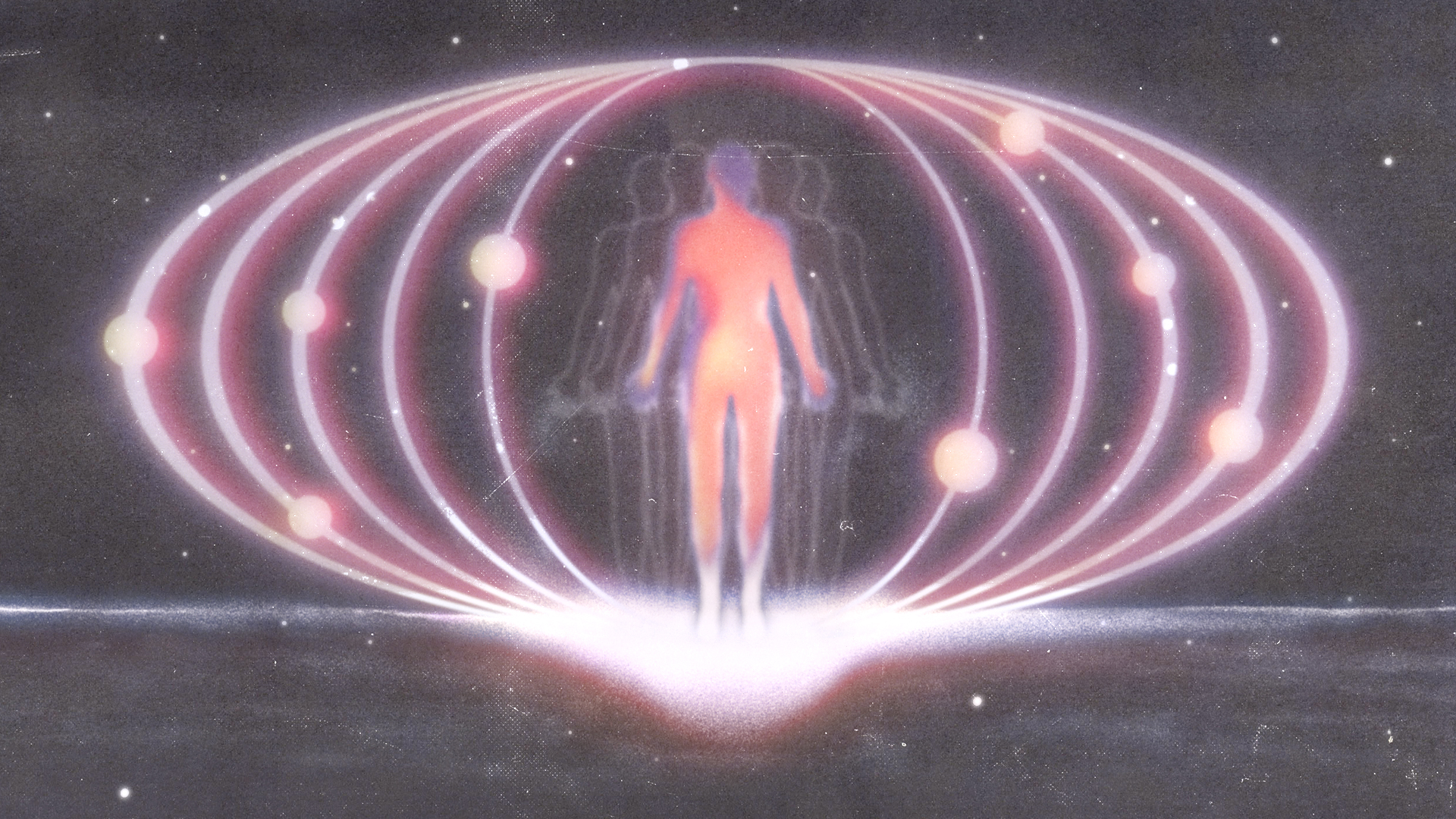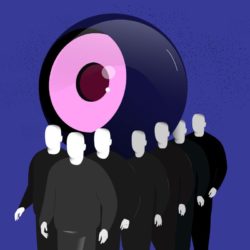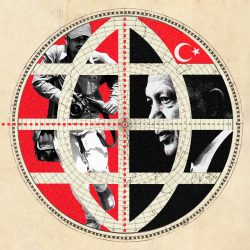
GIORGI GRDZELISHVILI
Chronic fatigue syndrome patients, long victimized by discredited research, turn to a dubious self-help program
In the spring of 2016, Judith Murphy was searching for answers. Ever since she contracted a flu-like illness two years before, she had been plagued by disabling symptoms, including extreme exhaustion, problems with memory and concentration, and sensitivity to light and sound. She couldn’t work and rarely felt well enough to go out.
She finally received a diagnosis of myalgic encephalomyelitis, also known as chronic fatigue syndrome. When other approaches failed to improve her health, she learned through “a friend of a friend of a friend” about something called the Lightning Process — a three-day in-person course that could, purportedly, help people recover from the illness.
Murphy, 30, who lives in Bournemouth, England, and worked in childcare before becoming ill, had no idea what the Lightning Process was or how it was supposed to work. She enrolled anyway. Her mother drove her to the training, which took place in a quiet country setting about a half-hour away and included a few other patients. When she arrived, she was reassured by the trainer’s words.
“She was like, ‘Don’t worry, you’ll be better in a few days — you’ll be dancing out of here,’ all this wonderful-sounding stuff, so I was quite hopeful,” Murphy told me via WhatsApp.
As she soon learned, the process involved a specific sequence of verbal statements and movements designed to derail the thoughts and actions that were supposedly causing her illness and jump-start healthy changes. To demonstrate, the trainer stood up at one point and extended her arm, holding her hand upright.
“She said, ‘Stop! I have a choice, I can choose the pit or I can choose to live a life I love, and I choose to live a life I love!’” recalled Murphy. More vocal affirmations and exclamations followed. “In a nutshell, she was trying to sort of meditate or visualize herself in a good place and imagine away her symptoms,” she said.
Murphy found the prospect of performing such actions over and over again to be daunting. “They say to do the Lightning Process whenever you’re having a symptom, whenever you’re feeling ill,” she said. “But I feel ill constantly, so how does that actually work? It’s not physically possible. Does that mean you just spend the rest of your life doing the Lightning Process?”
When she raised questions like these at the gathering, the trainer admonished her for being “negative.” Despite her concerns, she yearned to get well and struggled for months to implement the program and stay active. Finally, she suffered a major relapse that landed her in the hospital with “crushing fatigue,” “pain all over my body,” “severe dizziness,” and “the worst migraine I’ve ever had.” She decided she’d had enough of the Lightning Process.
“I can say, hand on my heart, that I gave it everything I had, and it didn’t work,” said Murphy, who remains homebound.

Psychological and behavioral interventions
Chronic fatigue syndrome — or ME/CFS — is a poorly understood ailment marked by profound tiredness, cognitive dysfunction, sleep disorders, and an unusual symptom called post-exertional malaise, a pattern of relapses after minimal activity. Many patients report that an acute viral illness triggered their ongoing succession of medical problems. It is estimated that as many as 2.5 million people in the U.S. live with ME/CFS and up to 250,000 in the UK, many of them undiagnosed. Seriously ill patients can be homebound for years. Some are bedbound and cannot tolerate lights, noise and other stimuli.
In past decades, much research into ME/CFS treatment was devoted to psychological and behavioral interventions. More recently, these studies and their reported findings have been widely criticized as deeply flawed. A 2015 report from the U.S. Institute of Medicine (now the National Academy of Medicine), based on an extensive review of the literature, declared ME/CFS to be a “serious, chronic, complex, and systemic disease” not a psychiatric or psychological disorder.
Given the lack of approved pharmaceutical treatments, many patients have sought relief from alternative approaches — and the Lightning Process has been among the most controversial. Developed in the late 1990s by a British osteopath named Phil Parker, it is a goulash of osteopathy, life coaching, neurolinguistic programming, hypnotherapy and positive psychology.
Parker’s official Lightning Process website, which attributes chronic illness to hyperactive stress responses, refers to it as “a training program that teaches you to change the way your nervous system controls your body.” But critics say that Parker’s expansive scientific claims — which he and colleagues outlined in a 2018 paper in a peer-reviewed Romanian publication titled the Journal of Experiential Psychotherapy — are not supported by legitimate research.
“Despite trying to suggest a physiological basis for their approach, all the theory appears to consist of is that if someone is too stressed by being ill then telling them to stop being stressed will cure them,” wrote Jonathan Edwards, a professor emeritus of medicine at University College London, via email.
Last fall, the UK’s National Institute for Health and Care Excellence issued a draft of new clinical guidelines for ME/CFS, which highlighted the key symptom of post-exertional malaise. The draft noted possible harms from increased activity and specifically advised against the Lightning Process.
These days, Lightning Process practitioners are seeking to engage a new wave of potential clients: the long-haulers reporting persistent and often debilitating symptoms after an acute bout of Covid-19. This phenomenon, often called long Covid, can at times resemble ME/CFS, although the extent of the overlap between the two conditions remains uncertain.
Charles Shepherd, a Lightning Process critic and medical adviser to the ME Association, a U.K. organization that advocates for the interests of ME/CFS patients, noted this development with concern. “It is very worrying to find that desperate people with long Covid are being encouraged to spend large sums of money on the Lightning Process, a treatment that is completely unproven in relation to long Covid and ME/CFS,” he told me, via email.
In a recent email Parker sent in response to questions for this article, he told me that, so far, fewer than 100 people had taken the Lightning Process course for long Covid. “The anecdotal results are promising but it’s far too early to tell if the LP provides a useful solution for this issue,” he wrote.
Parker has spent decades exploring alternative approaches to health. Years after he had developed the Lightning Process, he promoted an enterprise called the European College of Holistic Medicine Healing Course. According to a website archived in 2007, Parker and a colleague were co-leaders of the program, which included lessons on, among other topics, “how to contact your spirit/healing guides to help you create the right space for healing,” “the use of divination medicine cards and tarot as a way of making predictions,” and “the use of auras for diagnosis of a client’s problems.” Student healers would also learn how to prepare a location in advance “so that any energy polluting the room will not interfere with the work you are doing.”
Parker’s biography on the archived website offered details on his provenance as a spiritual clinician. While working with his osteopathy patients, it noted, Parker “discovered that their bodies would suddenly tell him important bits of information about them and their past, which to his surprise turned out to be factually correct!” After that, “he further developed this ability to step into other people’s bodies… to assist them in their healing with amazing results.” In 2019, according to his LinkedIn profile, Parker completed a doctorate in psychology at London Metropolitan University.
In his email, Parker acknowledged his role with the European College of Holistic Medicine Healing Course, but dismissed it as irrelevant to his simultaneous work involving the Lightning Process. “I did once co-run a course, 14 years ago, on approaches to health based on concepts from alternative perspectives and non-western cultures,” he wrote. “However, I’m not and have never been a tarot expert or aura reader. This interest had nothing to do with the LP design and has no relevance to the LP.”
Blame and abdication
Lightning Process training takes 10 to 15 hours over three days. The cost, including three hours of individual follow-up calls, is around $1,200 with one of Parker’s three associates and nearly $2,800 with Parker himself, according to his website. Private sessions are also available.
Some participants have subsequently trained to become official Lightning Process practitioners. A 2017 online news article in The BMJ, a major medical journal, zeroed in on this point, observing that the Lightning Process “has a cultish quality because many of the therapists are former sufferers who deliver the programme with great conviction.” A map on the U.S. site for the Lightning Process indicates close to 150 practitioners around the world, including just over 100 in Europe, mostly in the U.K., 13 in the U.S. and Canada, and 23 in New Zealand and Australia.
Lee, a 52-year-old musician and artist in Brisbane, Australia, became homebound with ME/CFS in 2009. Describing his years of suffering, he recalled being close to suicide at certain points. He began to feel a bit better in 2018, after trying some “brain retraining” approaches, and last year experienced “enormous” improvements with the “amazing” Lightning Process. “Now I can ride a bus alone, get groceries, even drive a car a short distance,” wrote Lee via Facebook Messenger.
Lee, who preferred not to use his full name, told me that other ME/CFS patients often insist that he couldn’t have had the illness in the first place. That bothers him, even though he understands why people might find his story hard to accept. “It’s a difficult thing to get your head around because it goes against all the assumptions we generally make about what we can and cannot influence our bodies to do,” he wrote.
The websites of Lightning Process practitioners feature similar success stories. They do not highlight the accounts of people like Judith Murphy and others who report significant physical deterioration and emotional distress following a Lightning Process course.
In 2013, Rachel Elliott’s teenage daughter contracted glandular fever, from which she never really recovered. She received an ME/CFS diagnosis, took a course of graded exercise therapy through the U.K.’s National Health Service and got worse, said Elliott in a Zoom call. (Elliott’s daughter agreed that her mother could share her story but preferred not to be named.)
Elliott told me that by late 2014 her daughter could barely get out of bed. At that point, she recalled, an NHS consultant suggested the Lightning Process.
“It sounded very out-there to me,” said Elliott, an arts educator in north London. “We were just absolutely desperate, to be honest, and if an NHS consultant recommended it, what harm could it do?”
Her daughter took the Lightning Process course in 2015. In the days immediately after, she thrived and resumed a very active social life. “It just seemed absolutely truly and utterly miraculous,” said Elliott. But, within weeks, the post-program boost began to wear off and her daughter’s health started to decline. No matter how hard her daughter tried to implement what she’d been taught, said Elliott, the exhaustion and other symptoms returned in force.
“It really messed with her head, and she didn’t understand why after this effort, she was getting worse again,” said Elliott.
Moreover, Elliott added, the Lightning Process practitioner appeared to blame her daughter. “He basically said he couldn’t help her anymore, she had some kind of block, and did I know what it was,” she said. “It was all about a flaw in her personality. That’s rubbish.” The events had an “extremely damaging” psychological impact on her daughter and caused bodily harm by encouraging her “to push herself hard and fast beyond safe physical limits,” Elliott said.
Elliott said her daughter’s condition worsened in subsequent years and that she is now bedbound and fed by a tube. Her room is kept dark because the light disturbs her. She can usually communicate with her mother for a few minutes in the morning. Elliott recently wrote down on a slip of paper what her daughter asked her to convey about the Lightning Process: “If it works, it’s down to them, and if it fails it’s down to you. And if it fails, they just give up on you.”
In his email, Parker estimated that more than 25,000 people have taken the Lightning Process in the past 21 years and asserted that “the vast majority” of participants “achieve good and lasting change.” (I have reviewed the references Parker sent along with his answers, and they do not reasonably support this conclusion.) However, Parker wrote, “as we have always stated, with any intervention not everyone achieves the change they hope for.”
Nonetheless, he said that reports that participants felt blamed for not getting better are “surprising and upsetting” to him, since “lack of blame” is a core concept of the program. “We are keen to understand more about why some people feel this way about it,” he wrote.

A grab-bag of approaches
The Lightning Process, which is trademarked, piggybacks on the concept of neuroplasticity — the ability of our brains to adapt by generating new neurons and mapping new communications networks. The hypothetical and unwarranted leap is to maintain that people can exert conscious and effective control over this cerebral rewiring by using specialized techniques to ban unwanted thoughts or feelings and replace them with more desirable ones. Participants learn that they are “doing” rather than “having” their illness, and therefore can decide to stop “doing” it.
The Lightning Process is one of a number of programs promoting relief from ME/CFS and other chronic illnesses through some form of theorized but unproven neurological housekeeping. The claims are often grandiose. The Dynamic Neural Retraining System, for example, promises “limbic rehabilitation” and teaches participants “how to change the function and structure of your brain.” The Gupta Program supposedly “triggers the body’s natural ability to heal” and bills itself as “the original & best neuroplasticity and holistic health program since 2001.”
Overall, such programs include a grab-bag of possibly helpful strategies designed to interrupt the body’s fight-or-flight response, reduce stress and promote overall well-being. Among these strategies are philosophical teachings, breathing and meditation techniques, physical movement and mental exercises. Their websites feature books, videos and a range of courses and modules, along with testimonials from satisfied customers.
Surveys of ME/CFS patients have found mixed results for the Lightning Process, with some respondents reporting improvements and others that they got worse. A challenge in interpreting such surveys, as well as anecdotal accounts of recovery, is the lack of a biological test for ME/CFS, which means that it is impossible to ensure that those said to have the illness actually have it.
A standard definition used for years in the U.K. and elsewhere, for example, requires only one symptom — a period of unexplained fatigue lasting six months or more. However, cases of post-viral fatigue that will ultimately resolve on their own can sometimes extend for a year or more, making it hard to distinguish them from ME/CFS. Moreover, an unknown number of patients diagnosed with ME/CFS based on that definition or others might instead be experiencing fatigue due to depression, anxiety or related conditions. And some people might self-identify as having ME/CFS without having sought or received a clinical diagnosis at all.
“What comes under the umbrella of ME/CFS is a very wide spectrum of clinical presentations and pathological or mental health pathways,” wrote the ME Association’s Charles Shepherd in an email. “My gut feeling is that the ones who do improve and remain so are the ones who have chronic fatigue or a chronic fatigue syndrome that is being driven by psychological and psychiatric factors.”
Ola Didrik Saugstad is a Norwegian pediatrician, neuroscientist and professor of medicine at both Oslo University Hospital and Northwestern University in Chicago. He says that the Lightning Process cannot “heal” patients with an organic illness like ME/CFS, but might “help some cope” with the condition. “The problem with the Lightning Process is that patients are instructed to repeat to themselves and everyone else that they are healed, they are healed, they are healed,” he told me, via email. “And then we see tragedies, patients collapsing.”
Parker says that he finds it “saddening and surprising” for others to question people’s diagnoses after they get well. “I think it’s important to rely on the pre-LP diagnosis of medical experts and medical case histories that confirm the presence of these conditions of those who then go on to recover,” he wrote.
When it comes to proving its claims to the satisfaction of regulators, the Lightning Process has not fared well. In 2012, the U.K.’s Advertising Standards Authority criticized Parker’s site for promoting the program’s supposed effectiveness not only for CFS/ME, but for multiple sclerosis, fibromyalgia, irritable bowel syndrome, food and chemical intolerances, addiction and other conditions. The agency noted that “the website was likely to mislead consumers regarding the benefits of the LP” and expressed concern that people might participate in the program instead of seeking medical care “from suitably qualified health professionals.”
In response to a question about the ASA’s findings, Parker wrote that he believed a statement on the Lightning Process website about improvements among “people with CFS” had been justified, but that he had removed it after the advertising authority stepped in. He did not mention the ASA’s concerns about Lightning Process statements regarding multiple sclerosis and other conditions.

“Pseudostatistical jargon-filled waffle-fest”
More recently, Parker has stated that there is an increasing scientific base supporting the Lightning Process. But that scientific base has itself come under unflattering scrutiny.
In 2017, the positive results of a clinical trial of the Lightning Process for adolescents with ME/CFS, published in the influential journal Archives of Disease in Childhood, received widespread and credulous news coverage, with the exception of BuzzFeed, which offered an in-depth and much more skeptical view of the trial and the Lightning Process itself. Yet the researchers, a team from Bristol University, were later found to have violated core research principles designed to minimize the risk of biased responses. The journal ultimately posted a 3,000-word “correction and clarification” that undermined the credibility of the reported findings. (The correction and clarification resulted from my investigation of the trial and a subsequent complaint to the journal.)
Last year, Parker and colleagues published a review of the existing literature on the Lightning Process, selecting 14 studies for assessment. In a blog post, Brian Hughes, a psychology professor at National University of Ireland Galway, noted that some of the included studies were not peer-reviewed and that other research was fraught with flaws. Although the review was published in Explore, a journal from a major academic publisher, Hughes described it as “a self-serving pseudostatistical jargon-filled waffle-fest, utterly untroubled by even the tiniest smidgen of scholarly objectivity.” (Hughes and I are colleagues and have recently co-authored a paper on ME/CFS.)
In November, the U.K.’s National Institute for Health and Care Excellence, which develops clinical guidelines for medical conditions, issued a draft of new recommendations for ME/CFS after a three-year process of development. The draft specifically recommended against “therapies derived from osteopathy, life coaching and neurolinguistic programming (for example, the Lightning Process).” The agency plans to issue a final version of the guidance in August, after assessing public comment.
The Lightning Process debate is now roiling Norway, where it has gained visibility through the efforts of committed proponents. Researchers are seeking to launch a clinical trial for newly diagnosed ME/CFS patients. In December, Leif Edward Ottesen Kennair, the psychology professor at Norwegian University of Science and Technology overseeing the research, told the science website forskning.no that it is “a completely normal study, on a par with other studies we do in the field of psychology.”
Yet critics have raised serious methodological and ethical concerns. Among the objections are that the study lacks an acceptable control group, relies on subjective rather than objective assessments, overlooks potential harms, is designed in a way likely to generate biased results, and involves the use of public resources to test a commercial product. The investigators have defended the structure and conduct of the proposed study, which received regional approval last fall. A federal ethics committee is expected to release its decision on the matter this month.
The issue has played out in a spate of news articles and opinion pieces — both for and against — in Norwegian media. In January, Camara Lundestat Joof, a political columnist at the popular tabloid Dagbladet, wrote about her younger sister’s traumatic experience years before with the Lightning Process, after she developed ME/CFS following glandular fever as a teenager.
Right after taking the program, wrote Joof in her column, her sister declared herself to be “bubbling over with energy,” ramped up her activities, and adopted the distinctive Lightning Process language and mindset.
“When I asked how her symptoms were, such as the acute muscle pain, she replied that she did not ‘do’ muscle pain anymore, because her symptoms were not something she had, it was something she did, and by reformulating herself she could also take responsibility for them,” wrote Joof. But her sister couldn’t sustain the pace and soon crashed badly. Years later, she still suffers from ME/CFS. (Last summer, Dagbladet published a letter I wrote about the issue.)
Like Joof’s sister, Judith Murphy, the British woman who took the course in 2016, did her best after the training to keep up and stay active — but her condition declined anyway. In the months leading up to the crash that resulted in a hospital stay, she appealed to her trainer for support, she said. After a while, the trainer stopped responding.
“She just ended up ignoring me,” said Murphy.
When the course began, the trainer described the Lightning Process as if it offered “an absolute guarantee” of recovery, Murphy recalled. But, in the end, she felt she’d been taken advantage of. “It’s very deceptive and it’s preying on weak, vulnerable, desperate people who will do anything to get better,” she said.
The story you just read is a small piece of a complex and an ever-changing storyline that Coda covers relentlessly and with singular focus. But we can’t do it without your help. Show your support for journalism that stays on the story by becoming a member today. Coda Story is a 501(c)3 U.S. non-profit. Your contribution to Coda Story is tax deductible.









